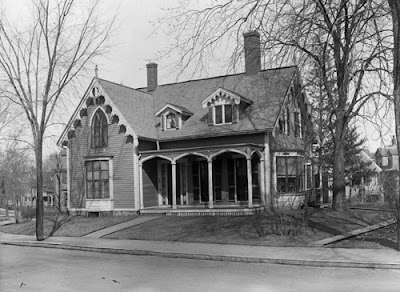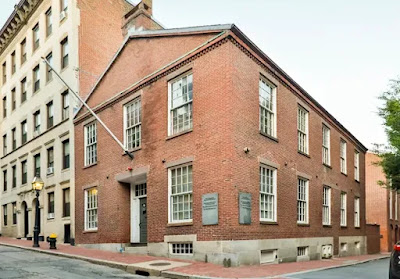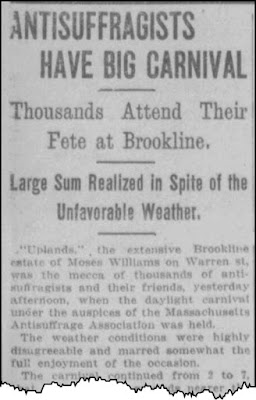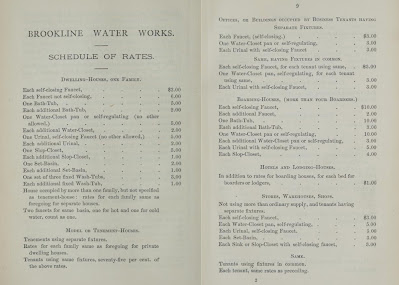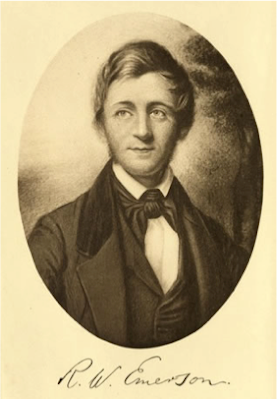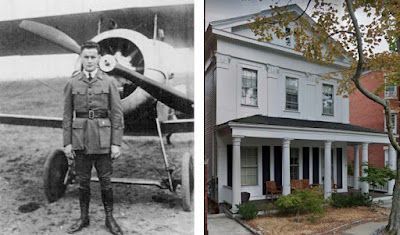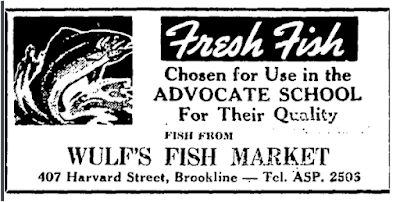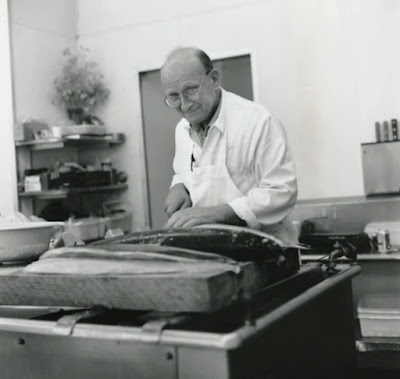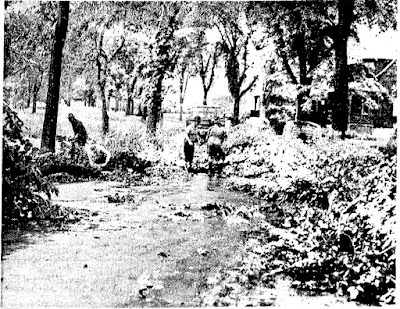 |
| May 24, 1941 |
May 27, 1875 - Brookline water turned on
May 24, 1898 - Open house at Pierce School
May 24, 1941 - Tornado in Griggs Park
May 25, 1999 - Vote to fund building of Senior Center
May 27, 1875
Brookline water turned onWater from the Charles River in West Roxbury became available for Brookline residents, three years after the town was first authorized to use the Charles for a municipal water system. (See
TWIBH April 30th-May 6th for the 1872 authorization and construction of the waterworks.)
A schedule of annual rates for water usage had been published in the town's annual report in February. It ran for eight pages, with differing rates for different types of residences and businesses and different types of water consumption. (Single-family houses, for examples, were charged based on the number of faucets, water closets (toilets), urinals, bath tubs, etc.)
Users of the town's water supply could choose to have their usage metered instead of paying a fixed rate. The town's 1877 report showed that water usage was lowest in March and November when water was not used for "watering streets" (to keep down dust) or "sprinkling lawns." It was highest from December to February which, according to the report "can only be accounted for by people letting water run to prevent freezing."
May 24, 1898
Open house at Pierce School
Parents and other residents of the town were invited into the Pierce Grammar School to view the work of the students during the school day. The open house was organized by Mary McSkimmon, the principal of the school from 1893 to 1932 and an innovative leader in public education both locally and nationally.
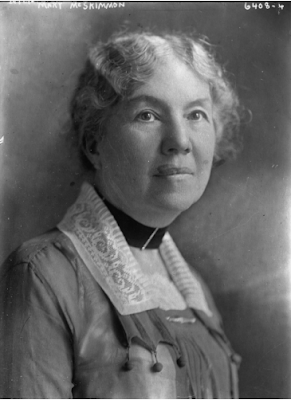 |
| Mary McSkimmon |
Among McSkimmon's efforts were the following:
- She was an early promoter of both student government and parental involvement in the schools.
- She was a co-author in 1914 of a "peace curriculum" for American schools aimed at promoting international understanding and appreciation for other cultures.
- As National Education Association president in 1925, she created a committee on "Problems in Negro Education & Life" which provided for the first time an official way for the predominantly white NEA to work with the predominantly black American Teachers Association.
As the Brookline Chronicle wrote upon her death in 1946, “She campaigned militantly for increase in music, physical training, school doctors and nurses in days when they were considered educational ‘frills,' and she often lectured on the subject, telling civic groups that unselfish taxation must be the rule for education.”
May 24, 1941
Tornado in Griggs Park
A rare tornado touched down in Griggs Park, uprooting nine large trees, each more than 50 years old, and causing widespread damage in just three minutes of destruction. (The aftermath is shown in the Boston Herald photo at the top of this post.)
The damage was described in great detail in the May 29th issue of the Brookline Chronicle:
It ripped a wooden penthouse off one apartment block, tore screens from a number of houses, zoomed galvanized barrels from alleyways, ripped clothes from lines, whipped pots and pans and other utensils off tables and in one house sucked a milk bottle through a window.
The falling trees took out power lines, reported the Chronicle, and several birds were killed, though no people were injured. Debris landed mostly in the park, but also in Griggs Road and Griggs Terrace, blocking traffic on those streets. A 1944 report on the tornado in the Bulletin of the American Meteorological Society suggested that the low-lying topography of the park was a factor in formation of the localized tornado.
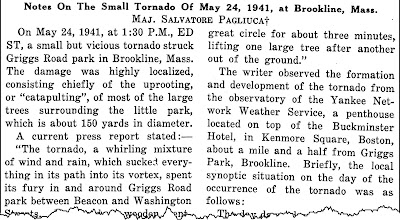 |
| 1944 report on the 1941 Griggs Park tornado |
May 25, 1999
Vote to fund building of Senior Center
Town Meeting overcame objections from a small group of opponents concerned about parking and/or increased taxes to overwhelmingly approve funding for the construction of the Senior Center on Winchester Street. The vote, which required a two-thirds majority, passed 206-30.
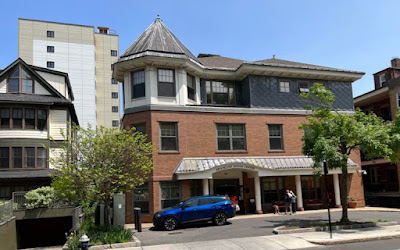 |
| Brookline Senior Center, 93 Winchester Street |
"We want our own identity, our own place to go," Agnes Rogers, 80, chair of the town's Council on Aging, told the Boston Globe ahead of the vote, Advocates had been pushing for a senior center for more than a decade.
The land for the new center had been donated to the town by real estate developer Roger Stern in 1995. The center, designed by the architectural firm Childs, Bertman & Tseckares, opened in 2001. In addition to town funding, the project received $1.6 million from the Federal Community Development Block Grants program.
